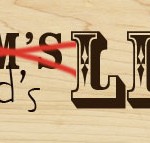Grade 8 students in Nova Scotia have improved in math and remained constant in literacy and science, but remain below the Canadian average, according to results of the 2013 Pan-Canadian assessment.
The assessment was administered in 141 schools in Nova Scotia, with 2,716 students participating.
“I am pleased that Nova Scotia has shown signs of improvement on this assessment, but there is still work to be done to bring scores up to the Canadian average,” said Education and Early Childhood Development Minister Karen Casey. “I look forward to receiving the report from the Minister’s Panel on Education and working with all our stakeholders to improve curriculum and increase assessment results in the future.”
The Pan-Canadian Assessment Program (PCAP) assesses Grade 8 students in math, reading and science and is administered every three years. It also looks at trends in gender and language.
The main focus of the 2013 assessment was science. Assessment results for Nova Scotia students in the three subject areas indicate the following:
Science:
— Nova Scotia students achieved an average score of 492 in science. The science assessment was revised substantially and cannot be directly compared to previous results. The Canadian average in science was 500
— There was no statistically significant difference in performance in science between boys and girls in Nova Scotia
— English-language students achieved higher science results than French-language students
Reading:
— Nova Scotia reading results remained constant in 2013 with a score of 488 compared with 489 in 2010. The Canadian average for reading was 509
— The average score for girls in Nova Scotia was 22 points higher than boys
— English-language students achieved higher reading results than French-language students
Math:
— Nova Scotia students had an increase of 14 points in math with an average score of 488, compared with 474 in 2010. The Canadian average is 508
— There was no statistically significant difference in performance in math between boys and girls
— French-language students achieved higher math results than English-language students.
“Math has been an area of focus in the province for the last several years and I am encouraged to see this positive trend,” said Ms. Casey. “We will continue to provide resources and supports for math, including math mentors, to help foster continued improvement.”
More than 19,000 Nova Scotians expressed their views on the province’s education system, including math and literacy results and curriculum. The Minister’s Panel on Education will present a final report this fall and work will begin immediately to develop an action plan based on the feedback of Nova Scotians.
The full Pan-Canadian Assessment Program report is available online at http://www.cmec.ca.
Source: Release



